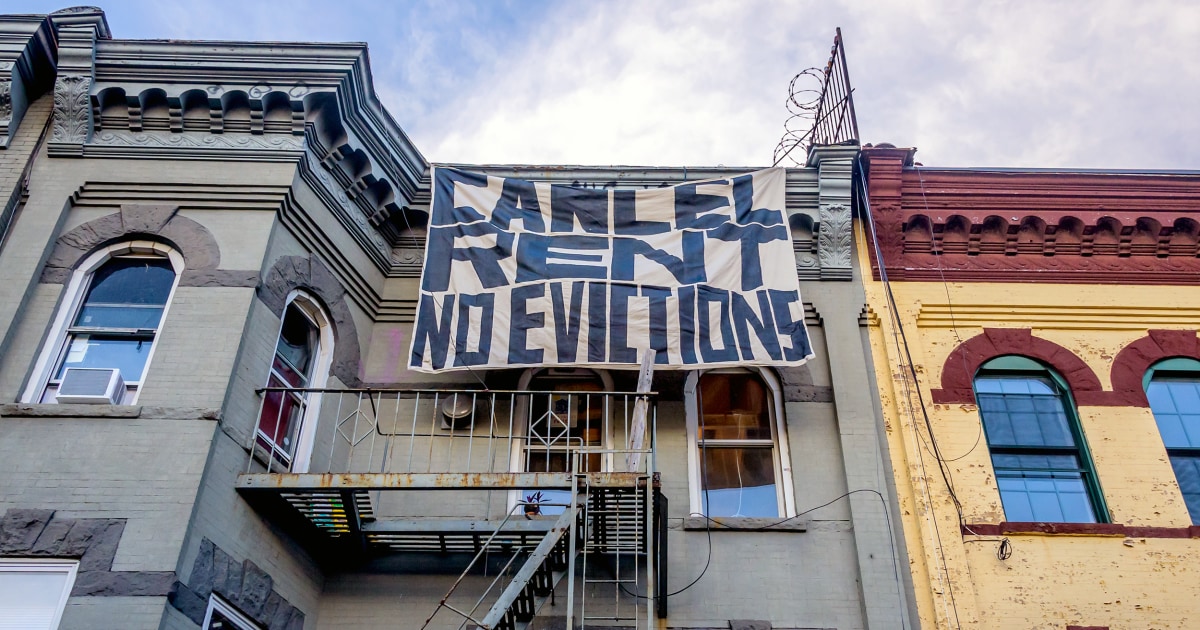
UPDATE (June 24, 2021 6: 00 p.m. E.T.): This piece has been updated to reflect the Biden administration’s announcement on Thursday that it would extend the temporary bans on evictions and foreclosures through July.
Temporary moratoriums have protected up to 40 million coronavirus-battered U.S. residents against a catastrophic spread of potential evictions. But without immediate, dramatic action, the protections offered by a national moratorium will soon end, exposing millions of U.S. residents to the national housing epidemic that pre-dated the COVID-19 pandemic — and that has only grown in size and scope. To stop that from happening, we need to act now. (The moratorium was set to expire at the end of June, but Biden just extended it through July.)
Even as the signs around us point toward a healthy recovery in our beloved cities of Oakland, Calif. and Mesa, Ariz., it won’t be easy.
Even as the signs around us point toward a healthy recovery in our beloved cities of Oakland, Calif. and Mesa, Ariz., it won’t be easy. Before the pandemic, America was already suffering through a housing affordability epidemic, with families living in their cars and more than 580,000 people in the United States experiencing homelessness, according to the federal government. Not surprisingly, Covid-19 made this worse, severely impacting Black and Hispanic households more than others.
As bipartisan mayors, our response has been to continue investing locally to build more affordable housing, provide rental assistance for low-income households, implement local eviction moratoriums and expand emergency homelessness response systems through programs like Project Roomkey, a California program which houses high-risk people experiencing homelessness in unused hotel and motel rooms.
These local and national eviction moratoriums and other programs have helped keep U.S. residents in their homes and expanded temporary housing as a bridge to longer term answers. But a number are only temporary fixes, and, in the case of the moratoriums, they also have real-world repercussions for landlords and others in the housing ecosystem.
We need to do more, and we can’t do it alone.
We’re encouraged by the American Jobs Plan, the Biden Administration’s $2.2 trillion infrastructure and recovery proposal that includes more than $210 billion in housing investments. The resources provided in the American Rescue Plan, including $20 billion for emergency rental assistance, $5 billion for 70,000 new housing vouchers and $10 billion in homeowner assistance, are appreciated and already helping hard-hit families in our cities and hundreds of others across the country. Like earlier relief in the CARES Act, these funds will make an impact, and they suggest that, for the first time in decades, the federal government is responding at scale. And while negotiations between our bipartisan elected counterparts on Capitol Hill grind on, they cannot distract us from reality. Now is the time for America to think big, and our coalition of 33 bipartisan mayors and business leaders has outlined five recommendations to extending the current administration and other Congressional plans into durable policies that would provide long-term, lasting benefits for America.
First, we need to scale what works. We need to support and increase funding for existing federal programs that are proven effective, including making Section 8 Housing Choice Vouchers available to all eligible households, Emergency Solutions Grants that help people regain stability in housing after undergoing a housing crisis or homelessness, Community Development Block Grants that help develop communities through better housing and better economic opportunities for low- and moderate-income people. We can also build on the successful Housing and Urban Development (HUD)-Veterans Affairs Supportive Housing model and create a similar, HUD-Health and Human Services joint program to help families and individuals experiencing homelessness who have mental health issues and other barriers to assistance.
Second, we need to treat housing as infrastructure, just as Canada, Australia and many European countries do. Congress and the administration should set ambitious goals and expand tools and financing to stimulate the private market and accelerate affordable housing production at the extremely low-income level. Any legislation should also provide incentives for new housing construction near busy employment centers and transportation hubs.
Third, we need to stop homelessness before it happens. America needs to invest in cost-effective strategies to prevent housing-insecure families from becoming homeless in the first place by expanding recent successful efforts, like the existing Emergency Rental Assistance Program, which provides one-time, short-term emergency housing assistance to very low-income households that lack any cushion when facing a housing emergency.
Fourth, we need to cut red tape. We can get more done, and more quickly, if we allow greater local flexibility to make existing federal housing programs more effective. We should also urge HUD to consider changes to regulations that would make resource allocation more equitable, provide flexibility in funding innovative housing and shelter models and improve access to private market housing.
And finally, America should invest in new ideas. The U.S. invented jazz, baseball and the internet. Why can’t we create a program that encourages new funding for innovative affordable housing models and building techniques that support new projects in local communities.
We are mayors from different parties, but we both agree that resources for housing are an investment, not a cost, which can help ensure that more of our neighbors find themselves safely and affordably housed as the country works to reverse the housing affordability epidemic in this pandemic. They can be another powerful shot in the arm for America’s better tomorrows.

No comments:
Post a Comment